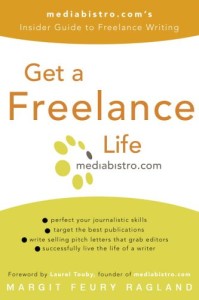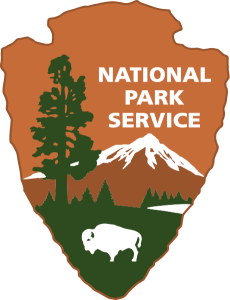Sometimes my ruminations over how to turn my passion for history, research, & writing into a paying job lead me to think about pursuing work as a freelance writer. Naturally, my brain follows this idea with a question: "How do I become a freelance writer?" On Friday, I attempted to satisfy my brain with an answer by attending a daylong workshop called: Freelance Writing Essentials.
Throughout the day, Ethan Gilsdorf took me and the other participants on a whirlwind tour of the freelance writing world. We learned what resources we need, about the commitment we must make, how to find stories, identify markets, pitch our stories to those markets, and what we can expect to be paid (not much).
The following represents the quick and dirty version of what I learned from this class.
3 Must-Have Resources
1. [amazon_link id="1599635933" target="_blank" container="" container_class="" ]Writers’ Market[/amazon_link]: Ethan described this book as  “the Bible for freelance work.” He also noted the importance of having the most up-to-date edition because each year there are new markets and editors.
“the Bible for freelance work.” He also noted the importance of having the most up-to-date edition because each year there are new markets and editors.
2. Mediabistro.com Avant Gild Membership: $55/year or $89 for 2 years. Membership has its privileges, which include great articles on how to pitch certain publications, a publication calendar, e-mail addresses for editors, opportunities to purchase health insurance, invitations to social events, and more. (Click here for full perk list)
3. [amazon_link id="B0012SMGQA" target="_blank" container="" container_class="" ]Get a Freelance Life [/amazon_link]by Mediabistro.com: Billed as “the complete guide to all aspects of a freelance writing career.”
 The Commitment/Disclaimer
The Commitment/Disclaimer
Ethan loves working as a freelancer and would like others to join him. However, he did not allow his enthusiasm to overshadow reality.
Aspiring freelancers will need to invest 2-7 years before they will find regular freelance work.
New freelancers will need to devote a good amount of time to ideas, research, writing, & pitching (20+ hours a week) for the first 3-6 months to get going.
Rejection will become a part of every new freelancer's life, especially in the beginning.
Freelancers do not get rich. (According to [amazon_link id="B0096823KM" target="_blank" container="" container_class="" ]Get a Freelance Life[/amazon_link] freelancers in the Boston area make somewhere between $10,000-$50,000/year.)
Great Markets for Beginners
Beginners should look to publish at small publications before they move on to bigger ones. The more publication credits a freelancer gets under their belt the more work they will receive.
Great places to start: Alumni Magazines & Local publications and small newspapers.
Finding Ideas/Stories
Who do you know? All freelancers should take advantage of their connections to find subject matter. We often know interesting people who work at interesting places.  Frequently, the people we know can point us towards other fascinating people.
Frequently, the people we know can point us towards other fascinating people.
Freelancers need to think about “Why Now?” “Why You?” & “Why the Topic or Story” as they mull over their ideas and flesh them out. They will need to answer all 3 questions when they pitch their ideas to editors.
Identifying Markets
Freelancers must research publications and what their needs are.
[amazon_link id="1599635941" target="_blank" container="" container_class="" ]Writer’s Market[/amazon_link], Mediabistro.com, & physical copies of publications play a crucial role in market research because they allow freelancers to see what publications are out there, what kinds of stories periodicals publish, and the name and contact information of a person to pitch to.
These resources also help freelancers save time and energy as they inform freelancers which features and columns are available to them.
Honing Ideas for Specific Markets
Before freelancers pitch a story, they need to research whether or not a specific publication has already printed a similar story. Serious freelancers will obtain the last 2-3 issues of the publication that they want to pitch to and browse its website to see if a market exists for their story with a particular publication.
Writers who wish to pitch stories related to travel, food, or current events need to be timely. Their trip or take on a given topic must be current or they need to add updated pieces to make their dated experiences current.
 Making the Pitch
Making the Pitch
Pitches have a life cycle. Freelancers should look at each rejection as an opportunity to tweak and hone their pitch and story idea.
All pitch letters should be tailored to a specific publication and must contain 4 pieces of information: 1.Hook 2. Idea 3.Details 4. Author Bio
All of the above should answer the “Why Now?” “Why You?” & “Why this Topic/Story?” questions.
Pitch letters should be no longer than 1 page. They should be written in the body of an e-mail. Most editors prefer to see pitches that take up no more space than their e-mail screen.
Conclusions
I really enjoyed Ethan's class and encourage anyone in the Boston area to go to Grub Street and take it (Ethan will offer the class again on August 23). You will learn more than I could ever post here and receive his 5 packets of notes, tips, and examples.
I came away from the class with a great deal of knowledge about freelancing and the confidence that I can make it as a freelance writer.
I view freelance writing as an opportunity to earn a bit of money by writing about my historical work and my other interests. I may not get rich, but it seems like I could create a career where my part-time freelance work helps support my full-time historical endeavors.
What Do You Think?
Do you have tips on how to be a freelancer? Please leave a comment for all to read or send me a tweet.







